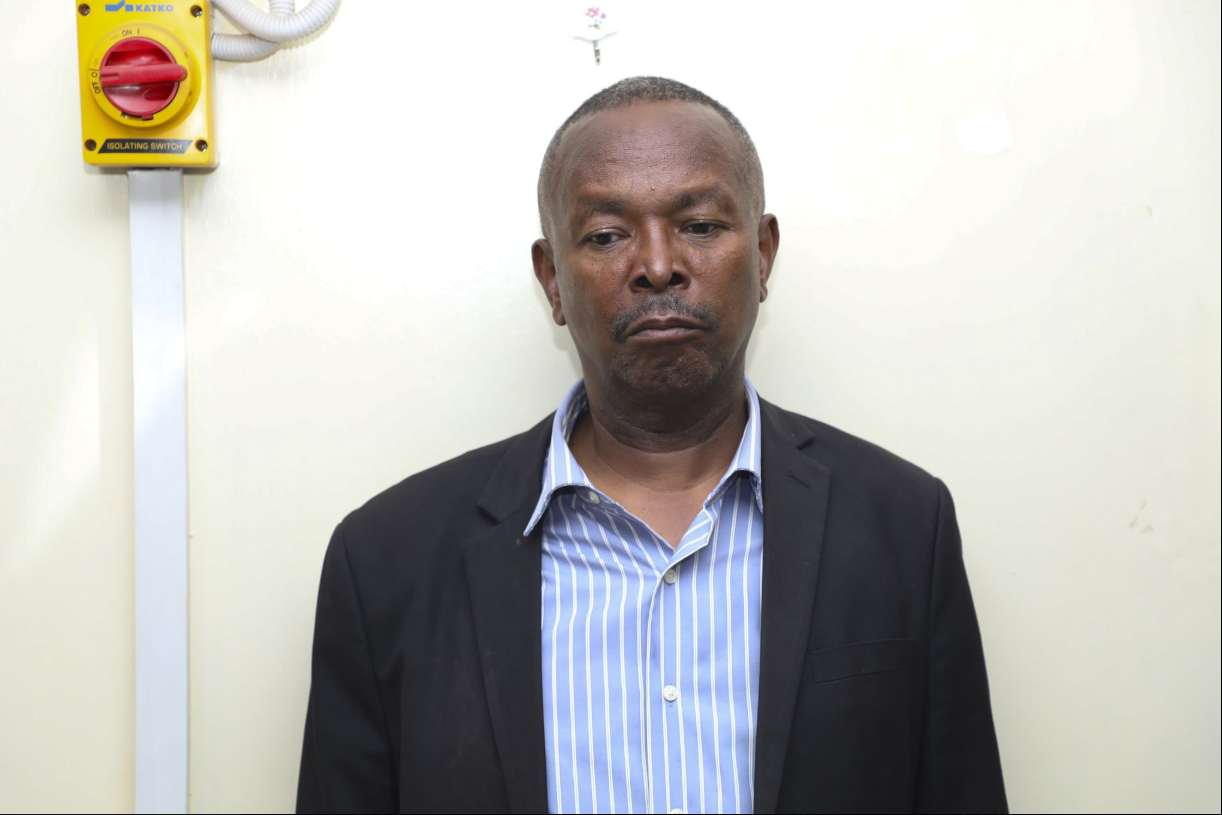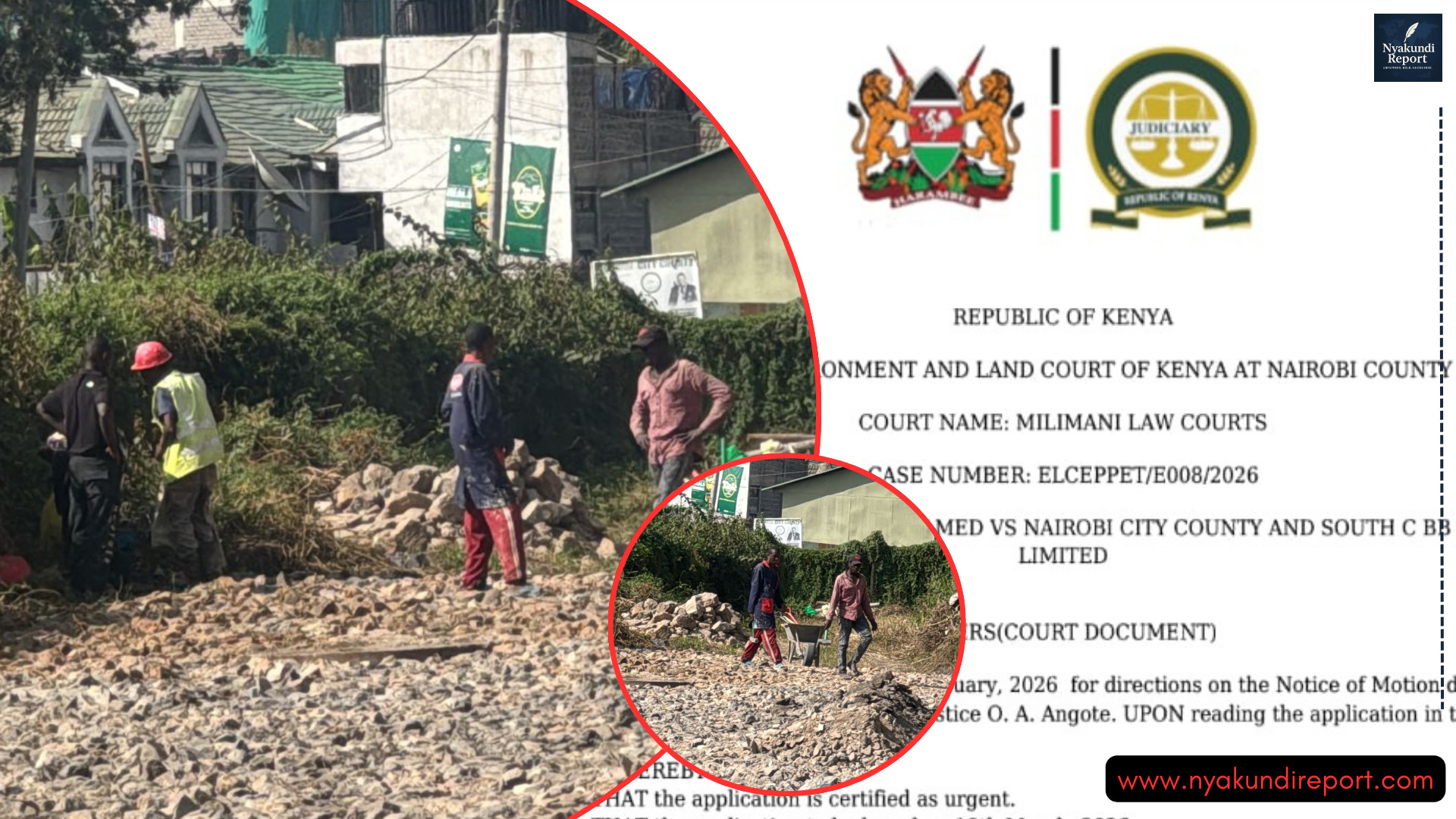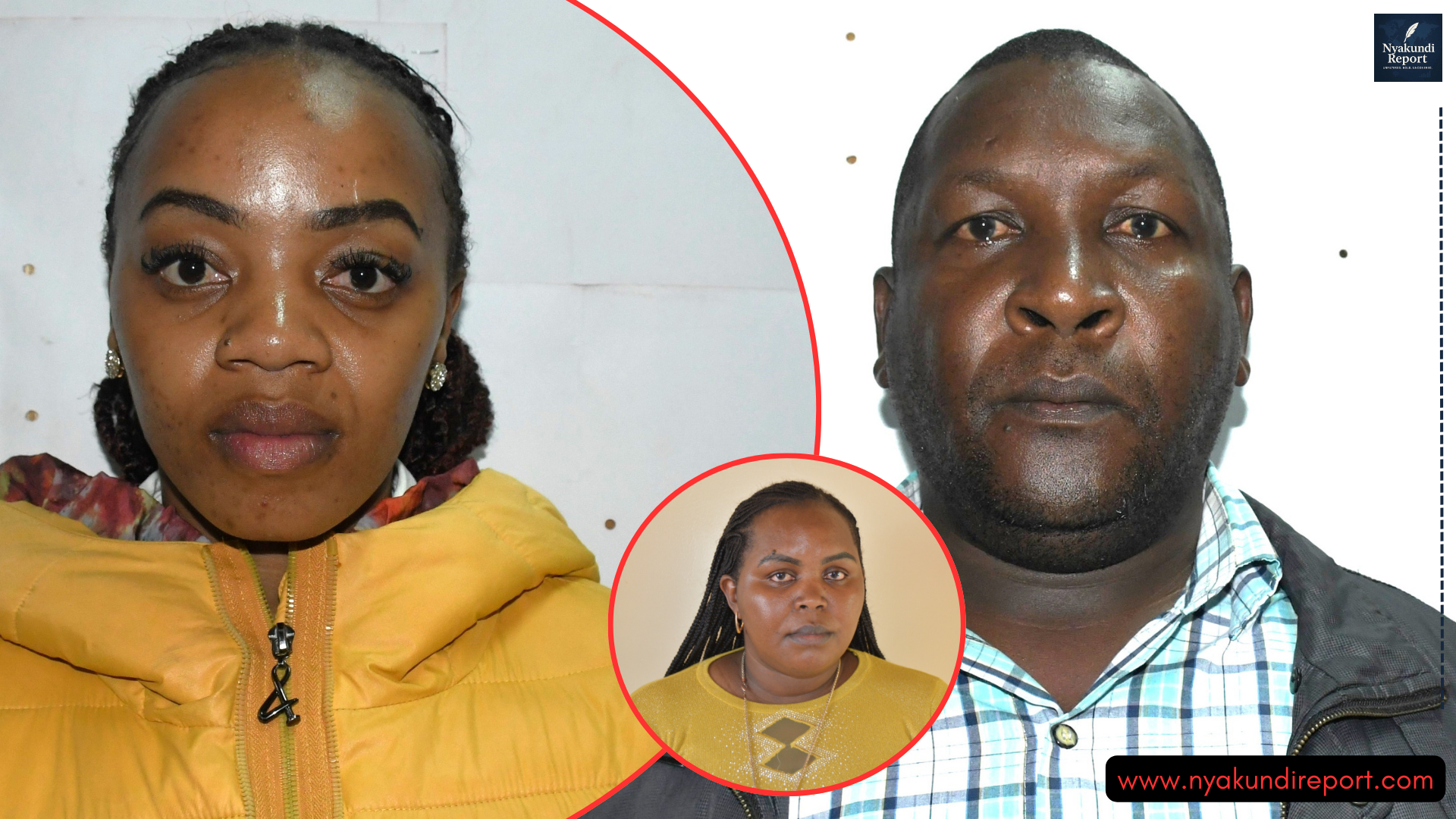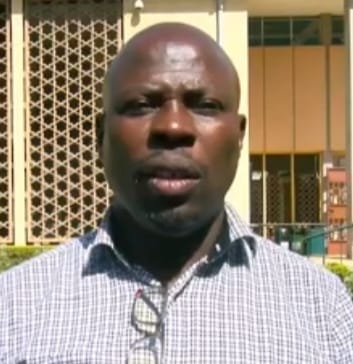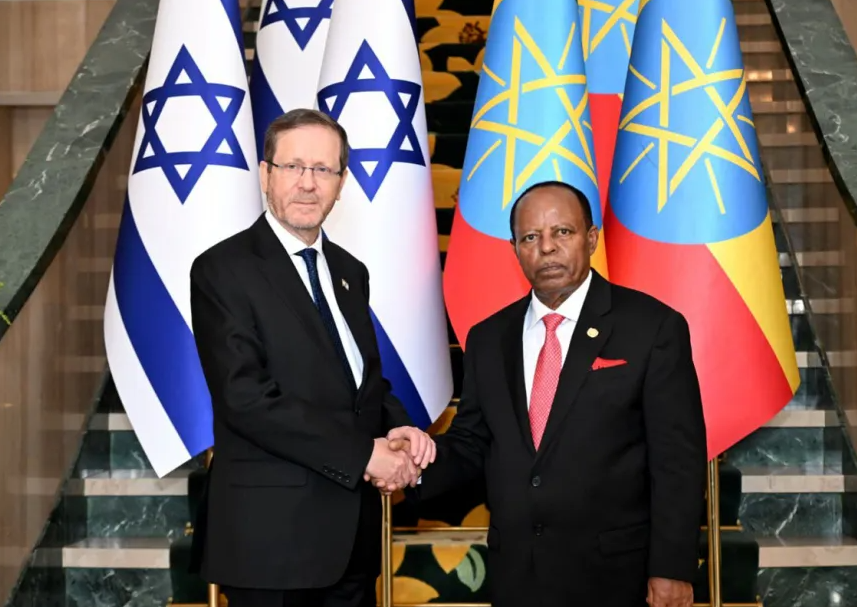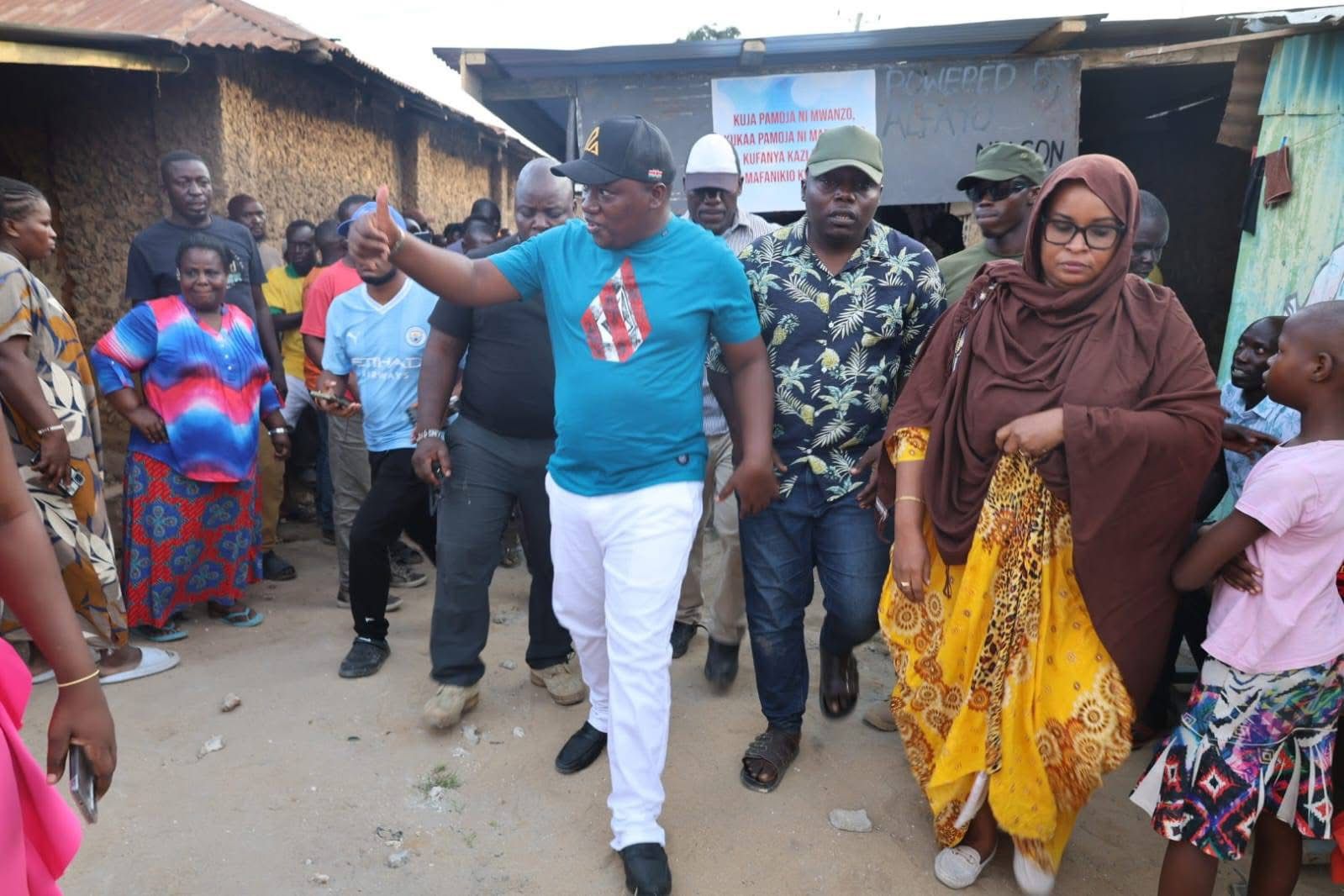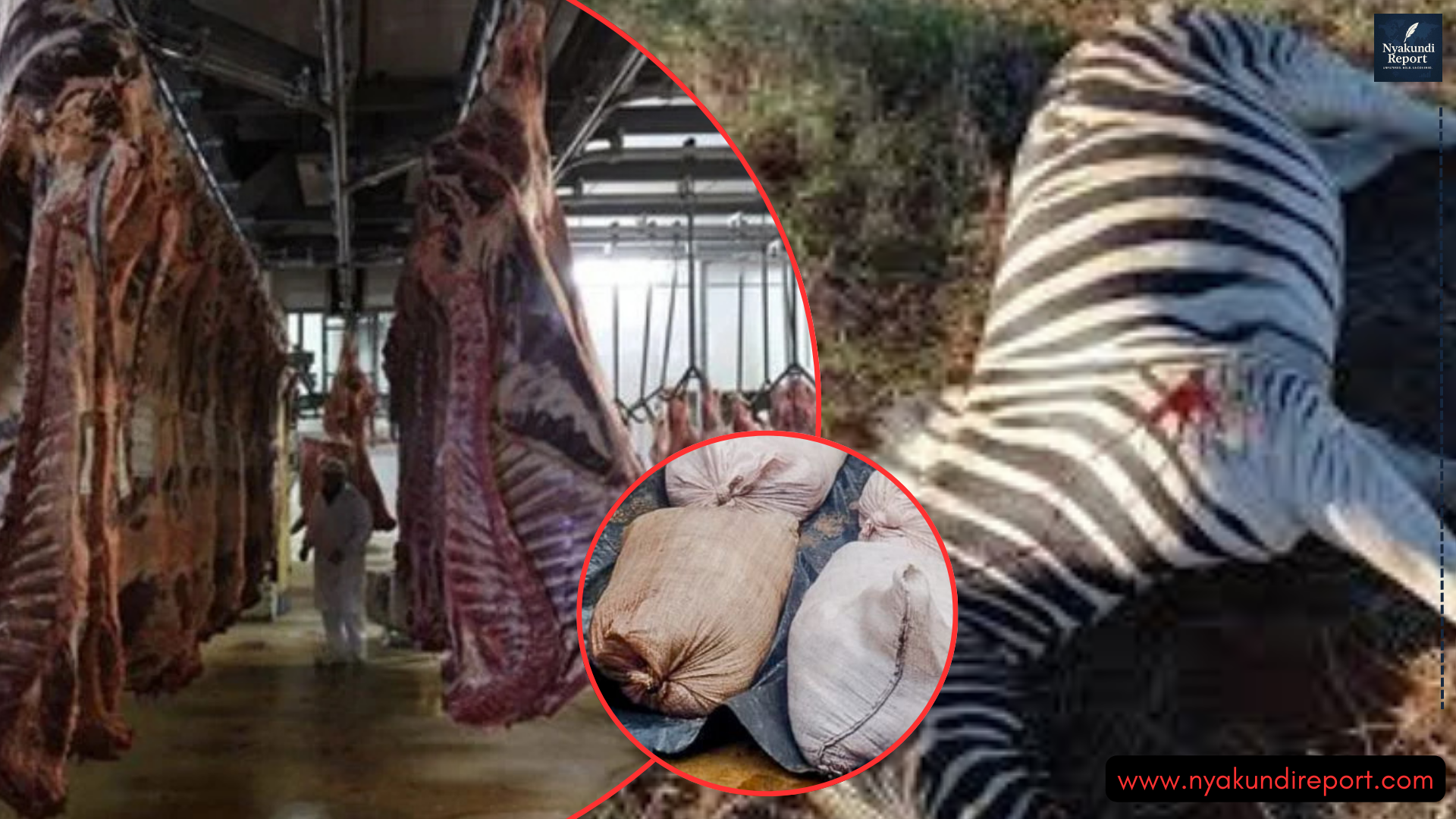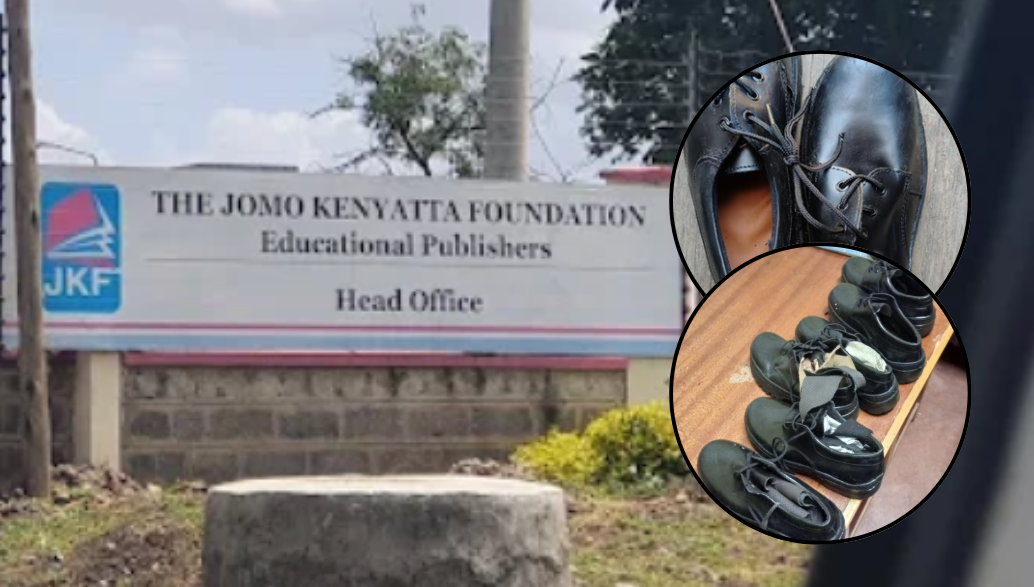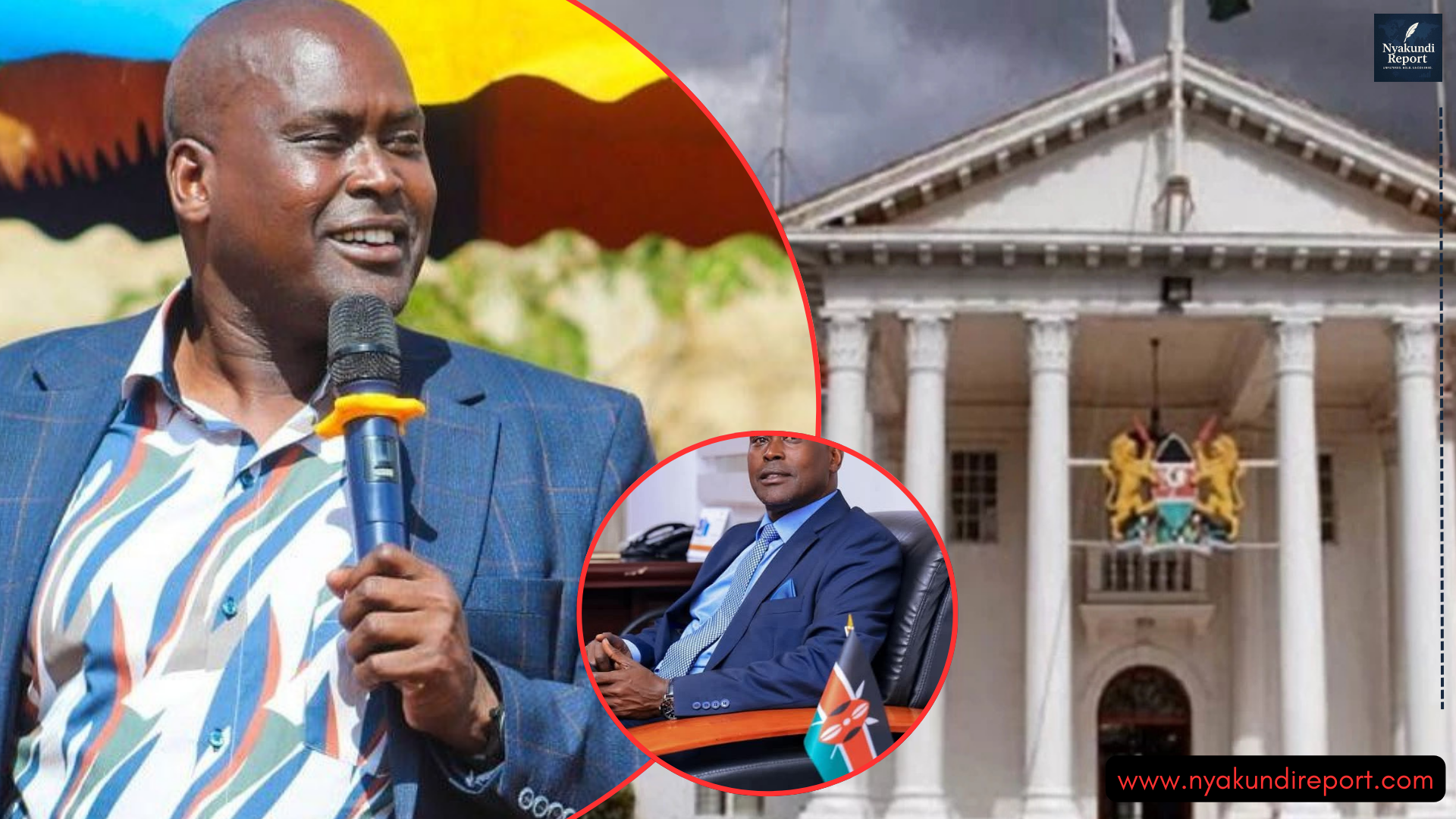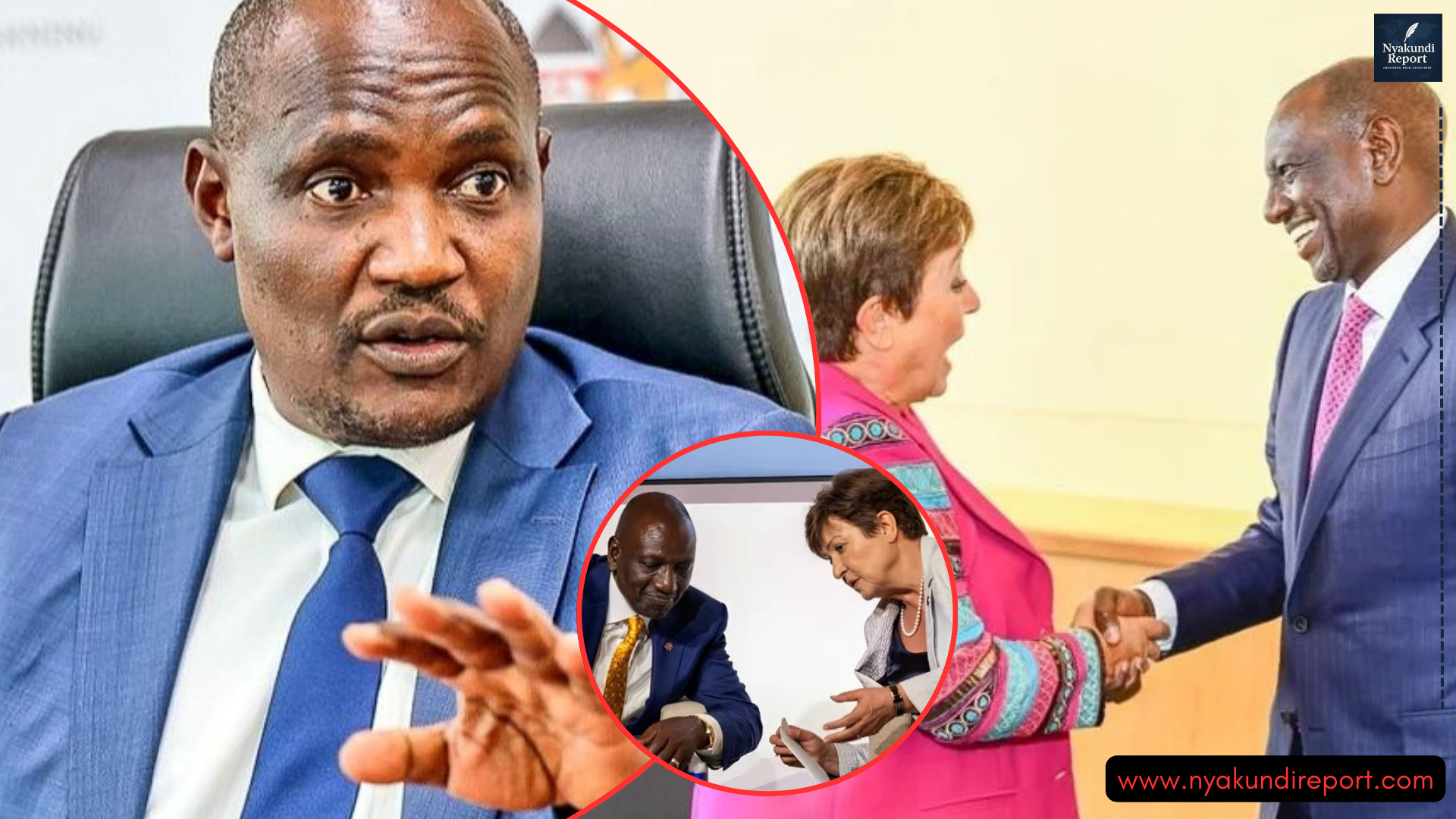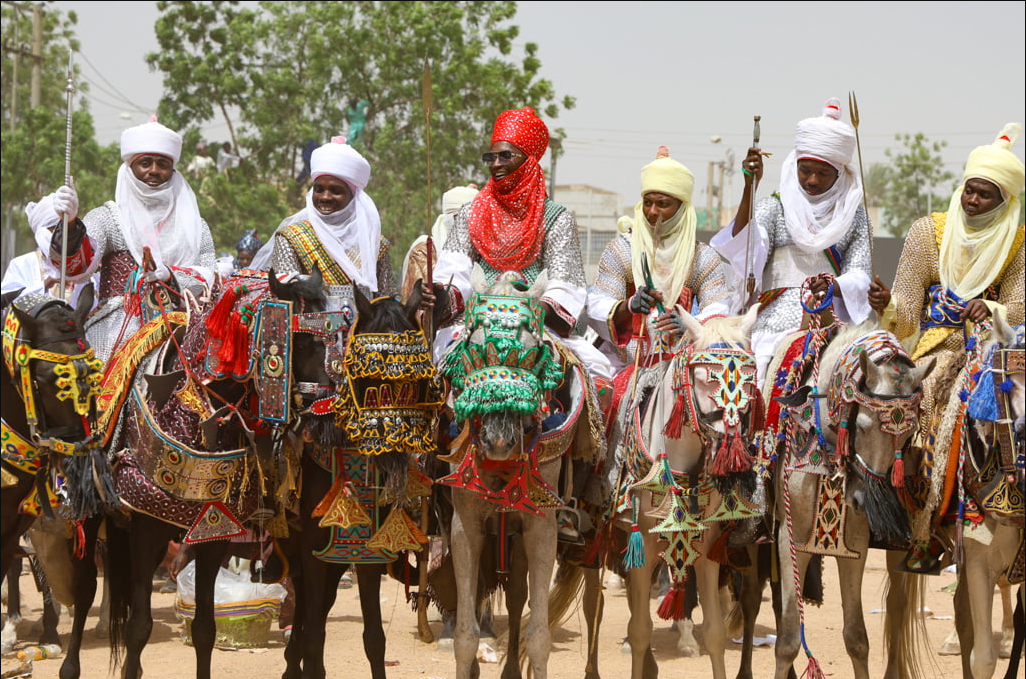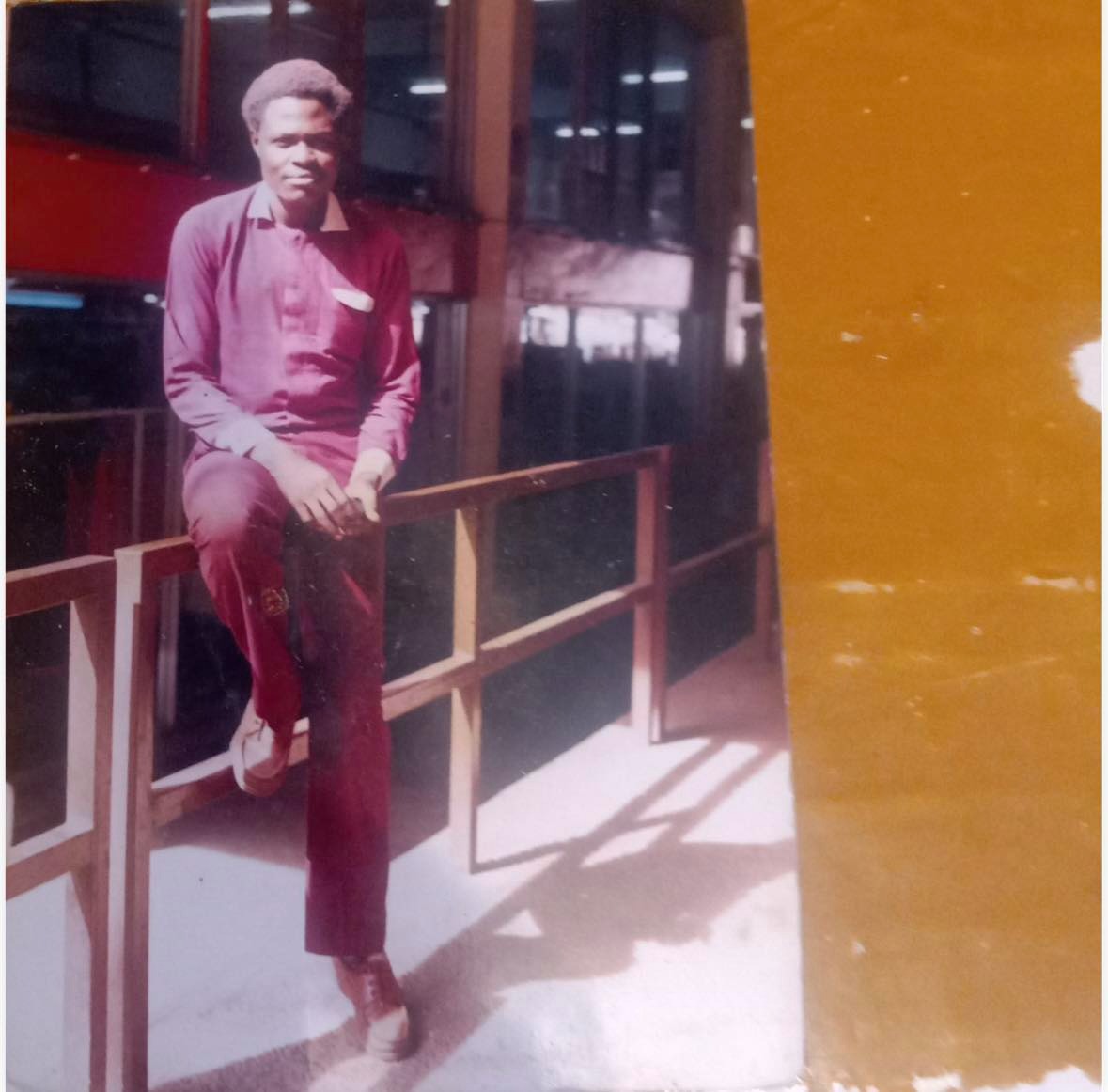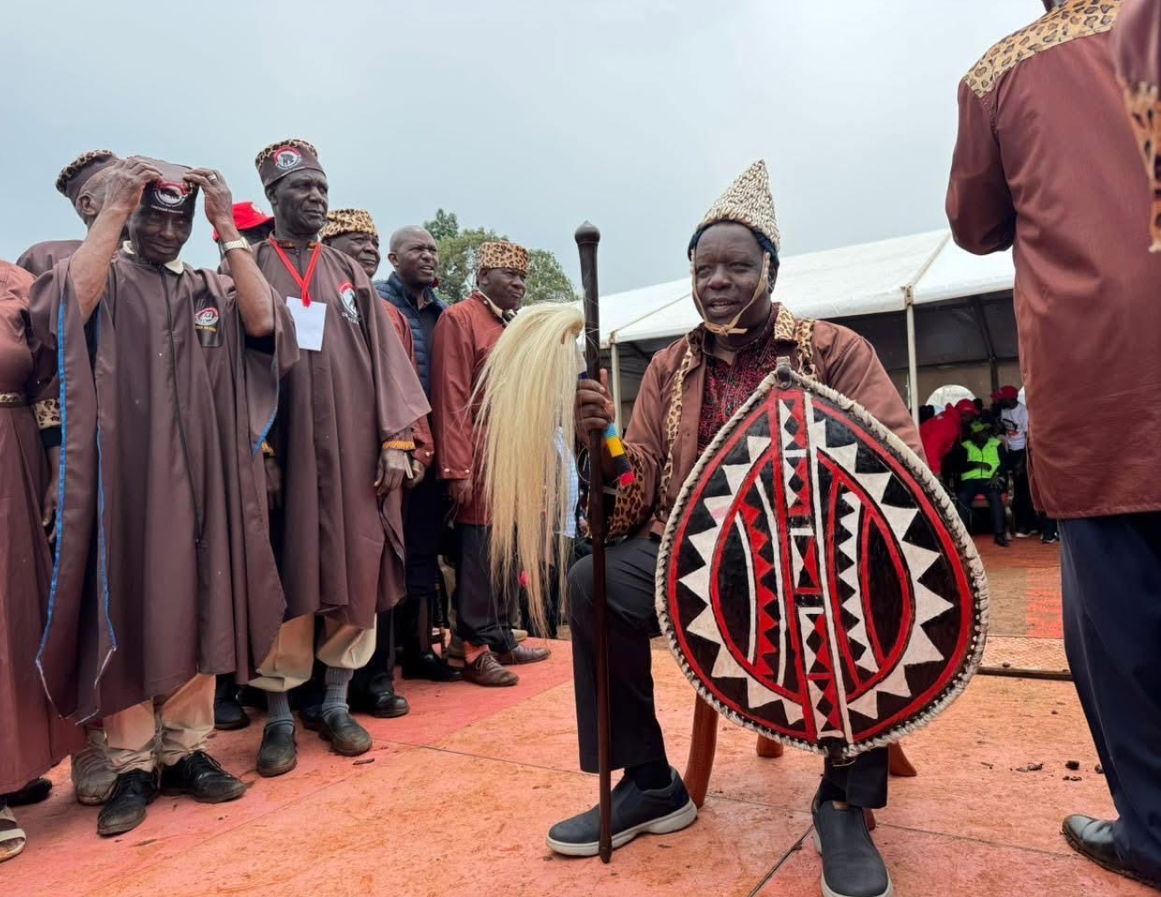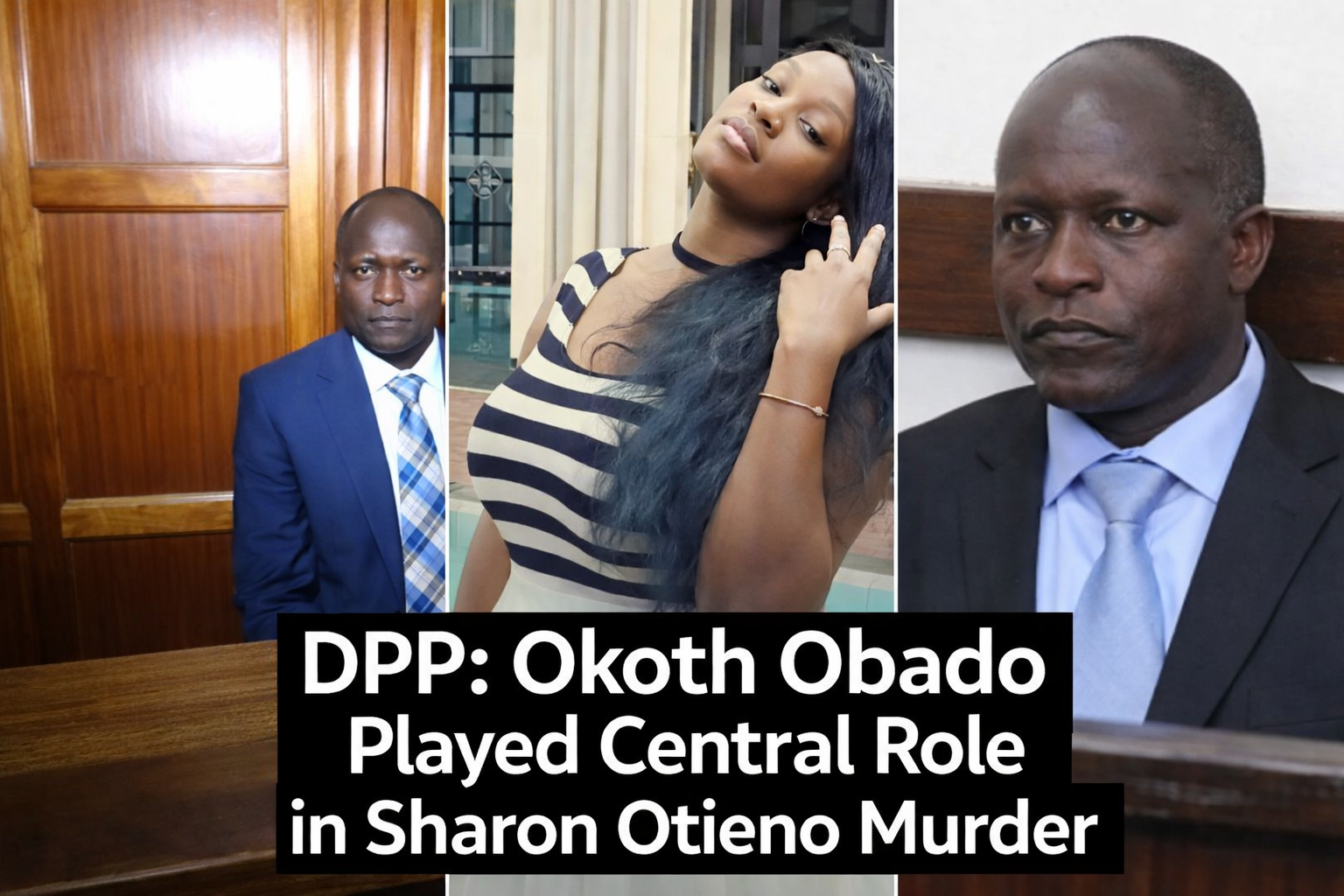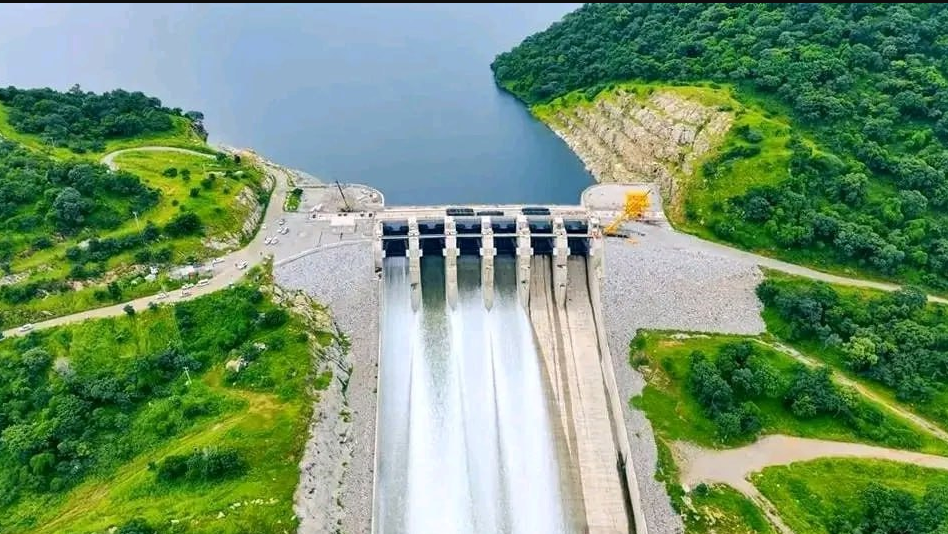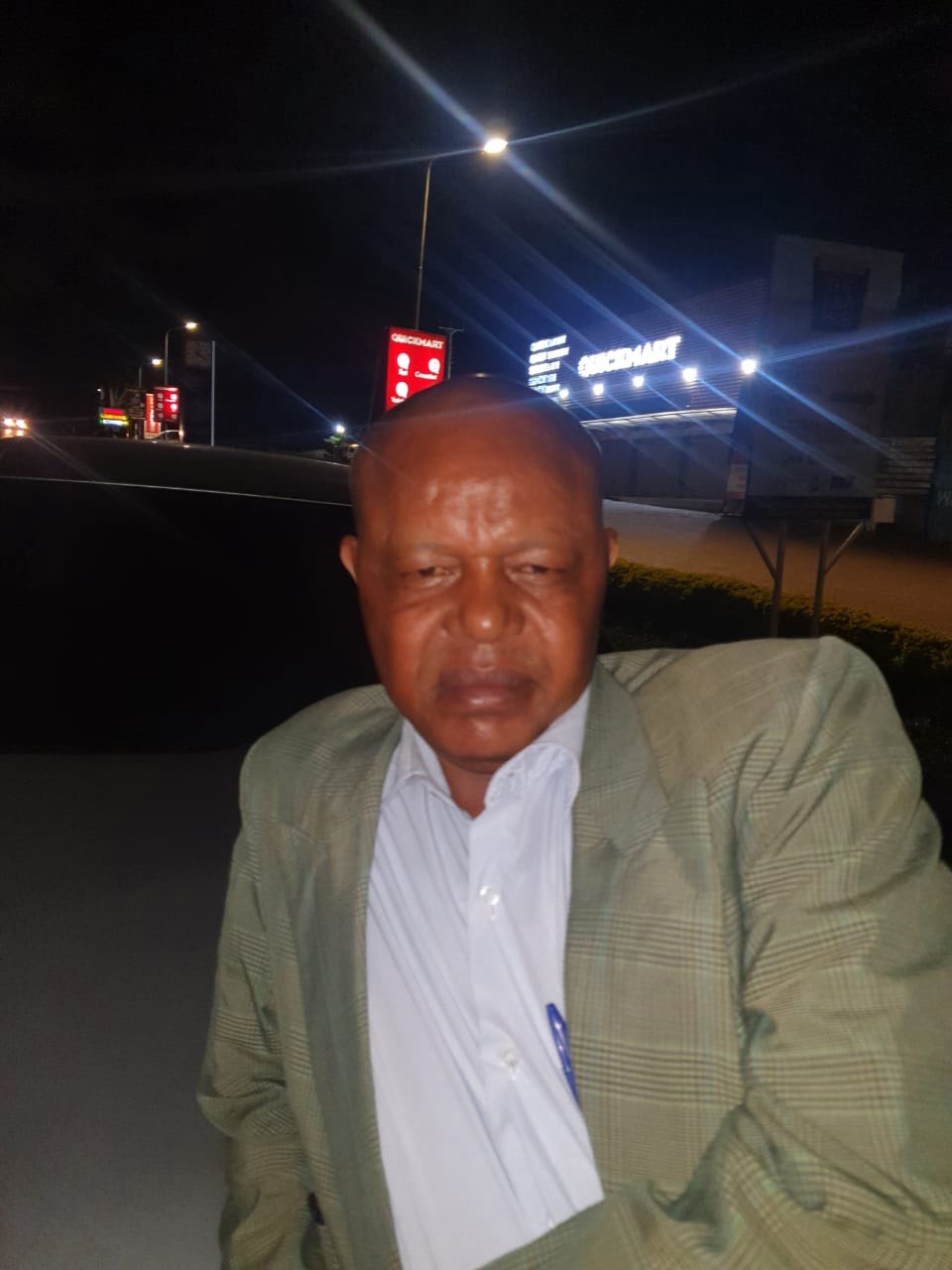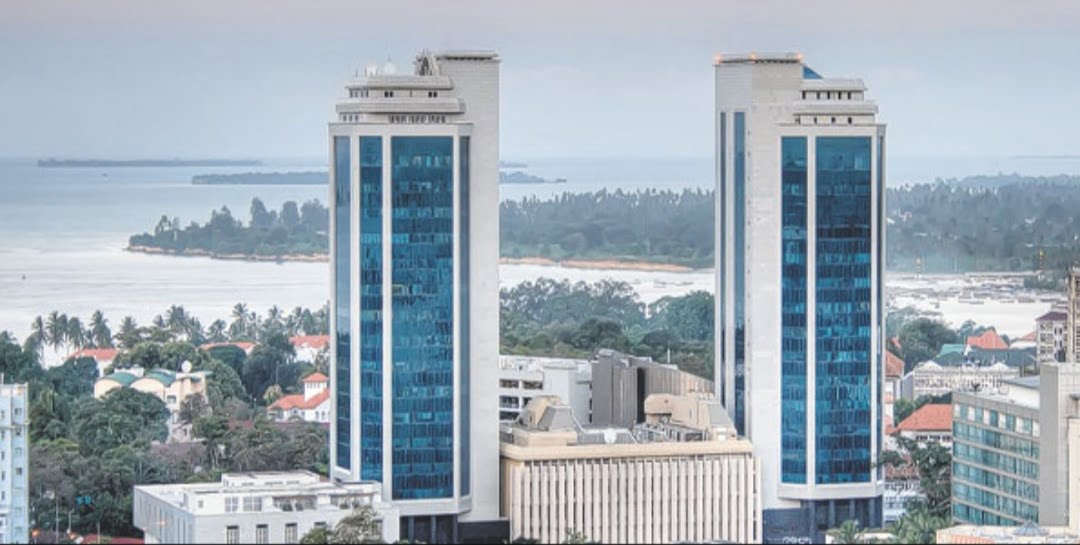Top police bosses were left stranded in the sky, then stuck on the ground. On Tuesday, Inspector General of Police Douglas Kanja and Directorate of Criminal Investigations (DCI) boss Amin Mohamed landed in Ang’ata Barikoi, Trans Mara, to address a deadly land feud.
But instead of stepping out to take control, they stayed trapped inside their police chopper for over an hour. Fear and fury filled the air.
The locals were restless, and officers feared a hostile reception. What was meant to be a high-level security intervention turned into an embarrassing standoff that exposed the raw nerves of a neglected crisis.
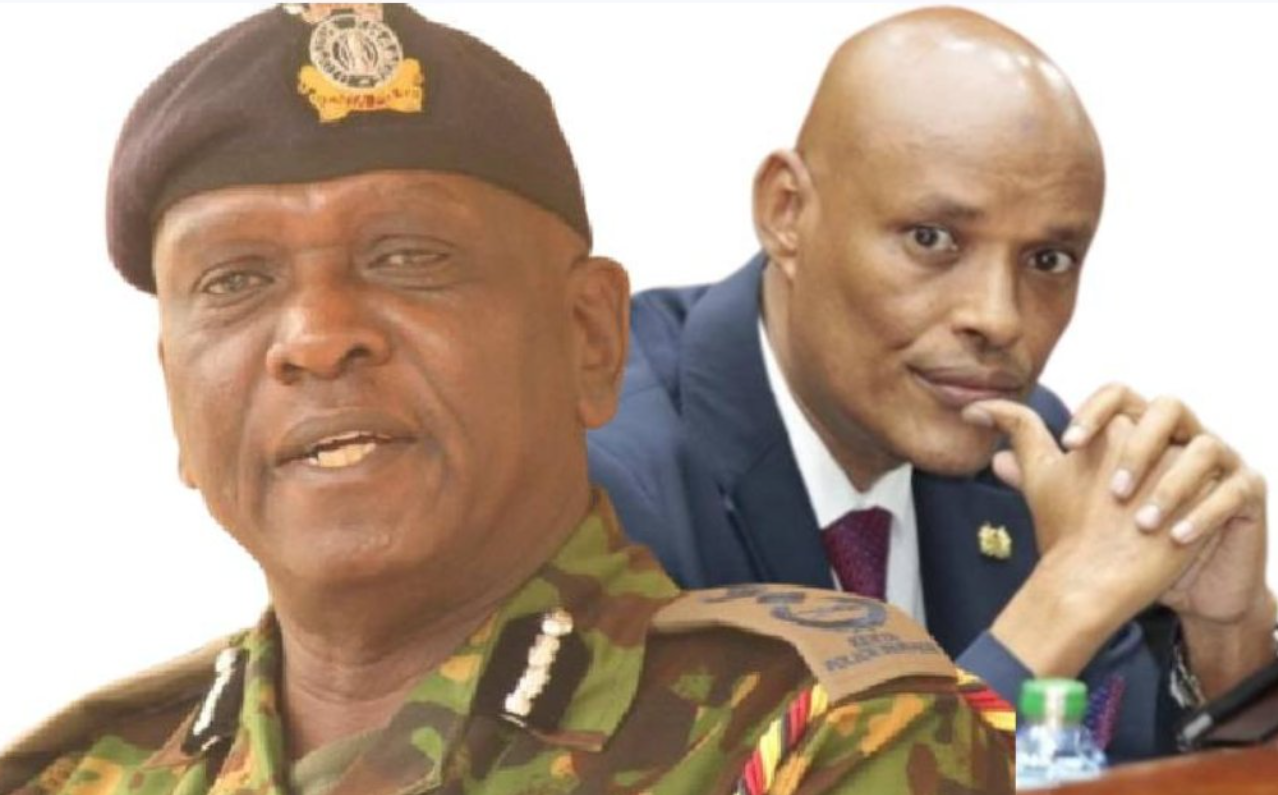
Police Brass Held Hostage by Tensions in Ang’ata Barikoi
When IG Kanja and DCI Boss Amin landed in Ang’ata Barikoi, the stakes were already sky-high. Just a day earlier, chaos had erupted after officers from the General Service Unit (GSU) shot and killed five residents.
The clash stemmed from a long-standing land dispute that had boiled over when thousands of locals stormed 6,300 acres they claim rightfully belong to them.
The land, they argue, was allocated to their community by former President Daniel Arap Moi. But recent attempts by a powerful politician to take control of the land sparked outrage.
Residents say the politician is trying to grab it from under their feet. What followed on Monday was violence, bloodshed, and fury.
By the time the police bosses arrived, the ground situation had turned volatile. Images obtained show the police air wing chopper parked awkwardly at the venue. Inside it sat two of the country’s most senior law enforcers—grounded by fear of backlash.
Outside, things were not any better. Angry residents had already chased off GSU officers sent ahead to provide security. The locals weren’t ready for more talk or promises. They wanted answers and accountability.
Johana Ng’eno, the Member of Parliament for Emurua Dikir, tried to calm the storm. But even he couldn’t bridge the trust gap. Ng’eno ended up meeting the people alone, without the backing of the IG or DCI chief.
This wasn’t Ng’eno’s first attempt to defend his constituents. On Monday, he was filmed confronting GSU officers during the chaos.
He stood face-to-face with armed officers and questioned their use of force. That footage spread quickly, turning him into a symbol of resistance in the escalating crisis.
The failure of the police leaders to engage the community on arrival dealt a serious blow to their credibility.
Instead of leading from the front, they sat back, confined to a chopper, as the situation on the ground unraveled further.
Also present at the planned meeting were Isaac Ruto, former Bomet Governor and JSC Vice Chair, and Senate Majority Leader Aron Cheruiyot. But the absence of the police bosses from the discussions overshadowed any progress.
Violence in Ang’ata Barikoi Highlights Deeper Land Disputes
The tragedy in Ang’ata Barikoi is not just about a failed meeting or a tense standoff. It reflects deeper wounds that have festered for years in Narok County.
At the heart of the conflict is land—who owns it, who controls it, and who decides. For decades, the land in question has been a flashpoint.
Communities say they were settled there legally under Moi’s regime. But rising political interests have seen attempts to wrest control back through force or manipulation.
Security responses to these disputes have often been heavy-handed. Monday’s shooting is the latest example of how police action can deepen resentment. With five residents dead and five officers injured, the cost of ignoring dialogue is becoming too high.
Cabinet Secretary for Roads Kipchumba Murkomen confirmed investigations are underway. But that is little comfort to families who lost loved ones or to locals who feel abandoned by the very people meant to protect them.
The sight of IG Kanja and DCI Boss Amin stuck in a helicopter for over an hour is more than just a logistical hiccup. It’s a damning symbol of a broken relationship between state authority and the people.
Leaders can no longer parachute into crisis zones and expect obedience. Trust must be earned, and justice must be visible.
If nothing changes in Ang’ata Barikoi, the cost will be measured not just in bodies, but in the crumbling of public trust in national institutions.

